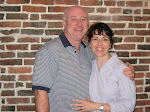This is a great article for anyone who is affected, or newly affected by Alzheimer’s Disease, and is trying to understand it’s effects on our loved ones. If you need help with an aging senior in the area, visit www.rightathomemass.net.
Stay Alert on Alzheimer's Disease
By: Barbara Rockwell
The term dementia refers to a brain disorder that demonstrates itself in several ways. A person may easily become confused even in known settings, may ask questions repeatedly, or may neglect such basic things as their own hygiene or basic safety issues. Alzheimer's disease is the most common form of dementia linked with old age.
The disease is named after German Doctor Alois Alzheimer. In 1906, Dr. Alzheimer noticed variations in the brain tissue of a patient of his that died with unusual mental illnesses and dementia. His study guided him to discover anomalous clumps and tangles of fiber in the brains of those patients who were suffering from this same disease.
Thus, whilst it was common for persons who were older and losing their mental faculties to be dismissed as "senile," Dr. Alzheimer was able to pinpoint the actual breakdown in the brain that led to the loss of their mental faculties.
According to the National Institute on Aging varied test conclusions, there are actual brain changes in persons with Alzheimer's disease. They can find out how nerve cells die in areas of the brain that affect memory and basic abilities. It may seem strange, but everything that we do on a daily basis is because of memory.
We remember that we need to take a shower on a regular basis that we need to shut the door behind us when we leave the house. We don't realize that we're doing these things because of memory, and assume that they just happen naturally. But when those memories break down because of Alzheimer's or any other mental disorder, even the most basic everyday functions begin to be confusing or neglected.
In fact, the brain works by a series of connections between nerve endings, all of which are related. For example, the part of the brain that controls speech sends signals to the nerves that spark the muscles and parts of the mouth when we wish to talk. Of course, all of our mental and physical functions work this way.
With Alzheimer's disease, these nerve signals are disrupted or broken. If the brain cannot continue to make connections in the nerve cells that control memory, all the basic functions are disrupted. The brain can't memorize that it just asked a question, so a person repeats it. They can't remember their own children, so they are now strangers. Alzheimer's can be a very frightening and debilitating disease for the patients and the families as well.
Article Source: http://myeldercarearticles.com






No comments:
Post a Comment